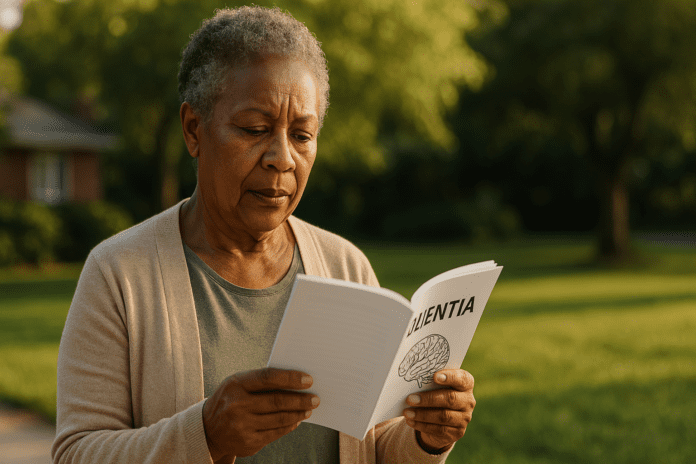Understanding the Importance of Client Education for Dementia
The journey through dementia is not solely a medical one—it is deeply human, emotional, and social. As the global population ages and the incidence of dementia rises, understanding how to support individuals with dementia becomes a public health imperative. One of the most powerful tools in this process is client education for dementia. This form of education empowers not just patients, but also caregivers and families, improving quality of life, enhancing care coordination, and reducing the stress that often accompanies cognitive decline.
Dementia is a complex syndrome that affects memory, thinking, orientation, comprehension, calculation, learning capacity, language, and judgment. Its progression can be unpredictable and distressing, particularly when those involved feel unprepared or unsupported. Client education for dementia seeks to address this uncertainty by equipping individuals with knowledge about the disease, its stages, symptoms, care strategies, and potential treatments. When caregivers and patients understand the “why” behind the behavioral changes, the experience becomes less intimidating and more manageable.
This educational approach extends far beyond simply delivering facts. It emphasizes communication, emotional intelligence, empathy, and individualized learning. Importantly, it recognizes that education must be a dynamic, ongoing process—one that evolves with the person’s needs over time. When tailored correctly, dementia patient education becomes an anchor in a sea of change, providing structure and understanding amidst the cognitive shifts that define the illness. For families, this can mean the difference between helplessness and hope.
You may also like: How to Prevent Dementia and Alzheimer’s Disease Naturally: Expert-Backed Strategies to Reduce Your Risk Through Lifestyle and Diet
The Cognitive and Emotional Benefits of Dementia Patient Education
Education is often considered the domain of the young, but in the context of dementia, it becomes a lifeline for those facing the vulnerabilities of old age. Dementia patient education helps preserve dignity by involving patients in their care, empowering them to express preferences, make decisions when possible, and participate in life-affirming routines.
For those in the early stages of dementia, receiving education about their diagnosis and what to expect can lessen anxiety. Rather than being blindsided by symptoms they do not understand, individuals who are well-informed are better equipped to recognize their own limitations and plan accordingly. This cognitive preparedness allows for more effective use of memory aids, medication reminders, and daily routines that support autonomy for as long as possible.
Emotionally, education fosters resilience. When patients and families understand that behavioral changes are part of the disease—and not signs of intentional opposition or disobedience—they are more likely to respond with compassion rather than frustration. This understanding also reduces the sense of isolation, as individuals learn that what they are experiencing is shared by many others. The empowerment that comes from knowledge transforms fear into action and confusion into clarity.
Moreover, education enables people to preserve their identities. Rather than being defined solely by their diagnosis, patients are recognized as individuals navigating a difficult condition. They are given tools to express themselves, manage their symptoms, and maintain connections with loved ones. This holistic understanding supports not just cognitive functioning but also psychological well-being.
Building Trust and Strengthening Communication Between Patients and Providers
Effective communication is the foundation of quality care. Without it, even the best treatment plans can fail. Client education for dementia plays a pivotal role in enhancing communication between patients, caregivers, and healthcare providers. When everyone involved speaks a common language rooted in understanding, care becomes more coordinated, compassionate, and effective.
Patients with dementia may struggle to articulate their needs, especially as the disease progresses. Educating caregivers and family members on how to interpret non-verbal cues, manage challenging behaviors, and create supportive environments is essential. These strategies allow care partners to “listen” in new ways—through tone, gestures, routines, and emotional context—leading to better recognition of the patient’s needs.
Healthcare professionals also benefit from engaging in ongoing education about dementia. When medical staff receive training in dementia patient education strategies, they are better equipped to convey information in ways that are digestible and reassuring. They learn to slow down, repeat key messages, use visual aids, and validate the emotions behind a patient’s confusion or fear. This creates an atmosphere of trust, in which patients and families feel safe to ask questions and voice concerns.
Furthermore, client education for dementia encourages shared decision-making. When patients and families understand their options, they are more likely to participate in meaningful discussions about care goals, advance directives, and preferences for living arrangements. This collaborative model strengthens relationships between all parties involved and promotes dignity and agency for the person living with dementia.
Empowering Family Caregivers Through Tailored Education
Family members often become the de facto care team when a loved one is diagnosed with dementia. Yet most are thrust into this role with little preparation or understanding of what lies ahead. This is where targeted dementia patient education becomes indispensable—not only for the person experiencing cognitive decline but also for those walking alongside them.
Education helps families understand the stages of dementia and anticipate changes before they occur. By learning about early warning signs, common behavioral shifts, and practical management techniques, caregivers can respond proactively rather than reactively. This foresight reduces emergency interventions, lowers stress levels, and helps preserve the emotional bond between caregiver and patient.
Equally important is the emotional support that comes from knowing what to expect. Many caregivers report feelings of guilt, resentment, or burnout when caring for a loved one with dementia. Structured education programs address these challenges head-on, offering strategies for self-care, boundary setting, and accessing respite resources. In this way, education becomes a form of emotional scaffolding, supporting not just the patient but the entire caregiving unit.
Family education can also help navigate difficult decisions, such as when to consider assisted living, how to manage finances, or how to balance safety with independence. When families are informed, they are better advocates for their loved ones. They also experience less conflict among themselves, as a shared understanding of the disease reduces blame and fosters collaboration.

Enhancing Long-Term Outcomes Through Early Intervention and Ongoing Learning
Timely education can shift the trajectory of dementia care. By introducing client education for dementia early in the diagnostic process, families and patients can plan for the future with greater confidence. Early intervention programs often include information about legal and financial planning, lifestyle changes that may slow cognitive decline, and strategies for maintaining daily function.
When education is ongoing rather than a one-time event, it becomes a continuous support system. As dementia progresses, new challenges arise—wandering, sundowning, changes in eating habits, and difficulties with personal hygiene. Adaptive education prepares caregivers for these developments, offering step-by-step guidance and real-time problem-solving tools.
Research has shown that well-educated caregivers are less likely to institutionalize loved ones prematurely. They feel more capable of managing care at home, delaying transitions to assisted living or nursing facilities. This not only supports patient autonomy but also reduces healthcare costs and preserves familial bonds. In this way, dementia patient education has a ripple effect, improving not just immediate care but long-term outcomes for all involved.
In clinical settings, ongoing education ensures that healthcare providers remain updated on best practices and emerging treatments. Dementia care is not static—new research continually informs better ways of managing symptoms, supporting mental health, and enhancing communication. Educational initiatives in hospitals, outpatient clinics, and community centers help bridge the gap between academic knowledge and everyday care.
Culturally Sensitive and Personalized Approaches to Dementia Education
No two individuals experience dementia the same way, and cultural values play a significant role in how people perceive and manage the condition. For client education for dementia to be effective, it must be tailored not only to the individual’s cognitive status but also to their cultural background, language, and belief systems.
Some cultures emphasize communal care and view dementia as a natural part of aging, while others may attach stigma to the diagnosis. Educational materials that fail to consider these differences risk alienating families or perpetuating misinformation. Personalized education approaches recognize the diversity of experiences and offer tools that are linguistically appropriate, culturally respectful, and contextually relevant.
This might include providing materials in a patient’s native language, using culturally familiar examples, or involving community leaders and spiritual advisors in the education process. When dementia patient education reflects the values of the community it serves, it gains trust and relevance. Families are more likely to engage with the information and integrate it into their caregiving practices.
Technology also plays a role in personalization. Digital platforms can offer customizable learning modules, videos, and interactive tools that adapt to the learner’s pace and preferences. For tech-savvy caregivers or patients, this flexibility increases engagement. For those less comfortable with technology, personalized one-on-one coaching or small-group classes may be more effective. The key is to meet people where they are and to view education as a collaborative, evolving process rather than a one-size-fits-all solution.
Supporting the Broader Healthcare Ecosystem Through Dementia Education
The benefits of dementia education extend beyond individual households—they strengthen the broader healthcare system. When families, patients, and professionals are aligned in their understanding of dementia care, the entire ecosystem becomes more efficient and humane.
Educated patients are more likely to adhere to treatment plans, attend follow-up appointments, and engage in preventive behaviors. They require fewer emergency interventions and are less prone to avoidable complications such as dehydration, falls, or medication errors. This reduces the burden on emergency departments, inpatient units, and long-term care facilities.
Likewise, when primary care providers, nurses, home health aides, and social workers are equipped with up-to-date dementia patient education strategies, they can deliver care that is more coordinated and person-centered. Training modules, continuing education credits, and interdisciplinary workshops help integrate dementia education into professional practice. As a result, healthcare providers feel more confident and competent, leading to improved job satisfaction and reduced burnout.
Community-level interventions also benefit from widespread education. Public health campaigns, caregiver support networks, and dementia-friendly community initiatives all draw on the foundation of informed awareness. The more the public understands dementia, the more inclusive society becomes. Stores, banks, transportation services, and recreational centers that train their staff in dementia sensitivity help people with cognitive challenges remain active, visible, and respected members of their communities.
Measuring the Impact of Education on Dementia Care Outcomes
The success of client education for dementia is not anecdotal—it is measurable. Studies have shown that educational interventions can lead to significant improvements in patient outcomes, caregiver satisfaction, and healthcare resource utilization. Metrics such as reduced emergency room visits, delayed institutionalization, improved adherence to care plans, and enhanced quality of life all serve as evidence of the impact.
Caregivers who participate in structured education programs report lower levels of depression, anxiety, and perceived burden. They are also more likely to use formal support services, access respite care, and maintain employment—all factors that contribute to long-term sustainability in the caregiving role.
From a clinical standpoint, patient engagement increases when individuals understand the purpose of their treatments and feel involved in decision-making. Even in advanced stages of dementia, education can help maintain routines that reduce behavioral disturbances and preserve dignity. Education also fosters trust, leading to better patient-provider relationships and more meaningful end-of-life discussions when the time comes.
Perhaps most importantly, the ripple effect of education promotes a cultural shift. It redefines dementia not as a sentence to helplessness, but as a condition that—while challenging—can be met with knowledge, compassion, and strategic planning. Education becomes a form of advocacy, ensuring that people with dementia are seen, heard, and supported.

Frequently Asked Questions: Client Education for Dementia and Its Broader Impact
1. How can client education for dementia support early diagnosis acceptance and emotional adjustment?
Early-stage dementia is often accompanied by denial, fear, or confusion, and one of the overlooked benefits of client education for dementia is its role in fostering psychological adjustment during this critical phase. When individuals and families receive structured, empathetic education early on, they’re better equipped to process the diagnosis emotionally. It helps normalize the range of emotions people may experience—from shock to grief—and encourages open dialogue about the future. Rather than leaving patients to navigate their fears alone, education offers cognitive frameworks, therapeutic storytelling, and peer-support narratives that promote resilience. This early educational engagement often becomes the first step toward re-establishing personal identity and coping mechanisms in the face of a life-altering diagnosis.
2. In what ways does dementia patient education reduce preventable hospitalizations and health emergencies?
Many dementia-related hospital visits are triggered by preventable events—such as falls, dehydration, infections, or medication mismanagement—that arise due to gaps in understanding or communication. Dementia patient education helps bridge these gaps by providing families with concrete knowledge about symptom progression, warning signs of complications, and when to seek medical help. It also improves medication literacy, ensuring that families understand how and when to administer drugs and what side effects to monitor. Moreover, education often introduces proactive strategies for home safety, nutrition, and daily routines, significantly decreasing the risk of avoidable emergencies. Over time, this preventative approach not only enhances health outcomes but also eases the burden on the healthcare system.
3. Can client education for dementia be tailored to different learning preferences and cognitive styles?
Absolutely. One of the most promising advances in client education for dementia lies in the customization of delivery methods based on the learner’s needs. Visual learners may benefit from illustrated handbooks or infographics, while auditory learners might respond more effectively to podcasts or recorded caregiver instructions. Kinesthetic learners often retain information better through interactive simulations or hands-on demonstrations. Some educational programs now even include virtual reality components to simulate real-life scenarios, allowing caregivers and patients to “experience” challenges and solutions in a controlled environment. Tailoring dementia patient education in this way increases retention and engagement, making learning more meaningful and impactful.
4. What role does technology play in advancing dementia patient education today?
Technology is rapidly transforming how dementia patient education is delivered and accessed. From mobile apps that track symptom changes and medication schedules to AI-powered chatbots that answer caregiver questions in real time, tech-based tools offer convenience and personalization. Some platforms now offer modular, on-demand education that adjusts based on the caregiver’s confidence level, learning speed, and language preference. Additionally, telehealth education allows rural or homebound families to access expert guidance without geographical constraints. The integration of technology ensures that client education for dementia is no longer limited to pamphlets or support group meetings—it is an evolving, interactive, and scalable resource for diverse audiences.
5. How does dementia patient education support legal and ethical decision-making over time?
A key component of comprehensive dementia patient education is preparing individuals and families for the complex legal and ethical decisions that inevitably arise. This includes understanding power of attorney, guardianship, healthcare proxies, living wills, and financial management tools. Client education for dementia provides families with the foresight to navigate these sensitive topics before the disease advances too far. It helps ensure that the patient’s voice is central in future care decisions and reduces the likelihood of family disputes. Moreover, it empowers caregivers with the ethical framework needed to advocate for patient autonomy while balancing safety and well-being—a nuance that often goes unaddressed without formal guidance.
6. Are there specific challenges in delivering client education for dementia in multilingual or multicultural communities?
Yes, delivering effective client education for dementia in diverse communities requires cultural fluency and linguistic sensitivity. Educational materials must reflect the community’s values, beliefs, and health literacy levels to gain traction and trust. In many cultures, dementia may still carry stigma, which can discourage open discussion or formal care-seeking behaviors. Language barriers further complicate matters when critical concepts—such as advance directives or symptom tracking—do not translate directly. To overcome this, dementia patient education must be co-developed with local stakeholders, use culturally familiar metaphors, and involve bilingual professionals or community health workers. When cultural relevance is prioritized, education becomes not only more accessible but also more transformative.
7. How can organizations measure the effectiveness of client education for dementia programs?
Evaluating the impact of client education for dementia requires both qualitative and quantitative metrics. Surveys that track caregiver confidence, patient quality of life, and care-related stress levels can provide immediate insights. More advanced programs may use pre- and post-intervention assessments, tracking changes in knowledge retention, decision-making confidence, and behavioral management skills. Healthcare outcomes such as hospital readmissions, emergency calls, and delayed institutionalization also offer measurable indicators of program success. Importantly, feedback loops involving patient and caregiver testimonials help refine and personalize educational content. By aligning outcomes with EEAT principles, organizations can maintain both the credibility and clinical utility of dementia patient education over time.
8. What emerging trends are shaping the future of dementia education in care settings?
One exciting development is the shift toward intergenerational dementia education programs that include youth in caregiving roles. Schools, colleges, and community groups are beginning to integrate dementia literacy into their curricula, fostering empathy and reducing stigma early in life. Another trend involves immersive simulations—such as dementia sensitivity training—that allow caregivers and clinicians to experience disorientation, sensory overload, and communication barriers firsthand. These experiences lead to more compassionate and informed care. Meanwhile, real-time data from wearable devices is being used to personalize dementia patient education even further, by tailoring suggestions based on biometric feedback. As innovations continue, client education for dementia is poised to become more holistic, responsive, and empathetic than ever before.
9. How can caregivers stay current with the latest best practices in dementia patient education?
Staying updated in the fast-evolving field of dementia care requires commitment to lifelong learning. Many reputable organizations—such as the Alzheimer’s Association, National Institute on Aging, and local memory clinics—offer continuing education modules, certification courses, and webinars. Subscribing to peer-reviewed journals or curated newsletters can also help caregivers keep pace with emerging insights. Some platforms provide interactive learning environments with discussion boards and expert Q&As that foster peer-to-peer learning. When caregivers treat dementia patient education as a continual process rather than a one-time intervention, they not only enhance their caregiving skills but also stay emotionally and mentally prepared for the journey ahead.
10. What are the long-term psychological benefits of robust client education for dementia on families and caregivers?
The emotional toll of caregiving is profound, but high-quality client education for dementia can mitigate its long-term psychological impact. Education demystifies the disease, helping caregivers interpret behavioral changes not as personal failures but as symptoms of neurological change. This reframing reduces guilt, improves coping mechanisms, and promotes emotional detachment where necessary. Structured education also teaches boundary-setting, stress management, and grief preparation—crucial tools for long-term psychological health. In many cases, families report that dementia patient education helped them reconnect with their loved ones, not by changing the disease’s trajectory, but by reshaping how they experienced the journey together—with greater patience, compassion, and peace.

Conclusion: Why Client Education for Dementia Is a Cornerstone of Compassionate Care
In the evolving landscape of dementia care, knowledge is more than power—it is peace of mind, connection, and hope. Client education for dementia is not a peripheral service but a central pillar of comprehensive care. It empowers patients to engage with their health, enables families to provide better support, and equips healthcare providers to deliver compassionate, evidence-based interventions.
By investing in dementia patient education, we create systems that are more humane, more efficient, and more attuned to the real needs of those affected by cognitive decline. Education bridges gaps in understanding, reduces fear, and fosters collaboration. It transforms reactive caregiving into proactive planning and reshapes the narrative around dementia from one of decline to one of dignity and resilience.
As we face an aging population and rising rates of dementia, the importance of education will only grow. The time to act is now—to build accessible, personalized, and culturally competent educational resources that serve individuals, families, and communities alike. In doing so, we not only improve outcomes but also affirm a fundamental truth: that every person, regardless of cognitive ability, deserves to be understood, respected, and empowered through knowledge.
Alzheimer’s caregiver support, memory loss education tools, cognitive health strategies, early dementia signs guidance, supporting elderly parents with dementia, dementia-friendly care techniques, brain health awareness, caregiver mental health tips, home care for cognitive decline, understanding memory disorders, personalized dementia care plans, non-pharmacological dementia interventions, effective communication in dementia care, long-term dementia planning, geriatric cognitive support, neurological health education, aging and brain function, compassionate elder care, behavioral symptoms in dementia, dementia progression support
Further Reading:
Empowerment for people living with dementia: An integrative literature review
Disclaimer
The information contained in this article is provided for general informational purposes only and is not intended to serve as medical, legal, or professional advice. While Health11News strives to present accurate, up-to-date, and reliable content, no warranty or guarantee, expressed or implied, is made regarding the completeness, accuracy, or adequacy of the information provided. Readers are strongly advised to seek the guidance of a qualified healthcare provider or other relevant professionals before acting on any information contained in this article. Health11News, its authors, editors, and contributors expressly disclaim any liability for any damages, losses, or consequences arising directly or indirectly from the use, interpretation, or reliance on any information presented herein. The views and opinions expressed in this article are those of the author(s) and do not necessarily reflect the official policies or positions of Health11News.


